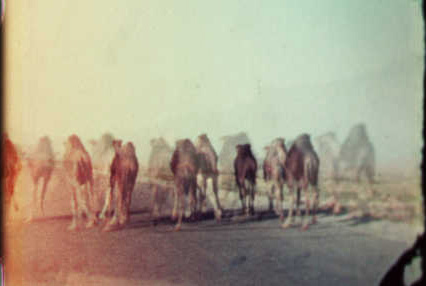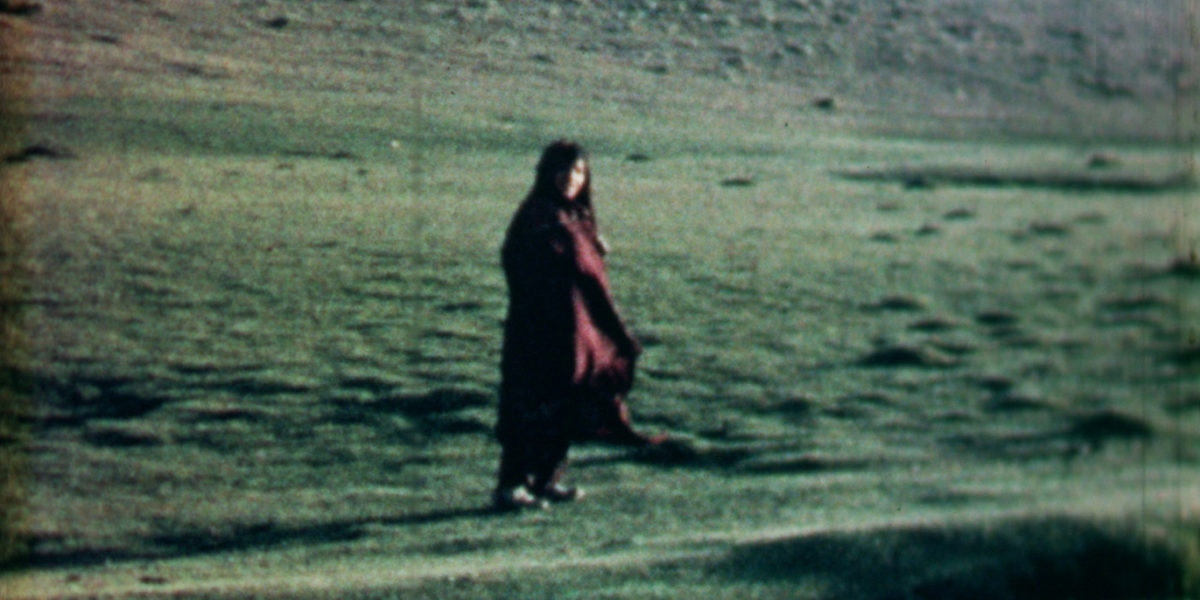Dinner with Journal afghan
Interview with Cédric Dupire, director of Journal afghan [Afghan Diary]
How did you come up with the idea of making Journal afghan ?
I came across the film and audio tapes of Dimitri and Christine’s 1965 trip to the Near East and Middle East by chance. I started by watching the films. At that particular time, I was especially touched to find tourist footage of Afghanistan, and especially of the vestiges that have now been destroyed. That discovery sparked my curiosity, so I digitized the audio tapes. What I discovered was a relationship to travel and to the civilizations encountered along the way that was from another time.
I figured that I had gotten a hold of documents that were precious because they had been made for no one in particular, simply as personal remembrances. In my hands, that memory was a gift. Since I had no connection to the owners, I simply took possession of them.
The idea for the film was to show the protagonists’ relationship to other civilizations and to compare that relationship with mechanisms of memory through recurrences and through the mixing of images and sounds.
In Journal afghan, the man says very clearly that he does not consider the people he meets to be civilized. Were you interested in this unconscious relationship to the idea of a single civilization?
The idea of a single civilization does not really interest me as such, I’m more interested in originality than in singularity. At the same time, I found their way of looking at the world and at others very significant, and for all its particularity, I see a key to the current state of the world.
Do you think meeting and discovering the other is possible in Journal afghan?
I think that meeting is always possible and that all people, regardless of what they’re like, are always affected by others. To my mind, there is no obstacle at that level. At the same time, I don’t think that Dimitri and Christine were open to such a meeting; they were looking more for adventure, yet without in the least wanting to upset their own cultural bearings.
There is a radio version of Journal afghan where Dimitri and Christine’s words have a larger presence. I encourage those who are interested to listen to it:
http://www.franceculture.fr/emission-creation-on-air-journal-afghan-2015-11-11
Without being aware of it, your characters belittle one of the cultures they encounter on their journey – Arab culture – which is nevertheless one of the crucibles of Afghan identity. Did you imagine a second part of the film in which you ask them about their reasons for their sincere rejection of that culture?
My goal is not to use Christine and Dimitri’s view for a study of Western ethnocentrism. My intention is lighter and perhaps also more poetic: to use only words to highlight one culture’s relationship with the world, a culture that sees itself as dominant and legitimate. Not through the words of people who might have been able to imagine such a thing, but rather through “normal” people in whom that ideology is deeply rooted. I find that simple, spontaneous words are more emotionally meaningful. I also find an even greater strength in the fact that their thoughts about the world are not meant for anyone in particular.
.
.
In Journal afghan, you also look at the relationship to poverty, which your characters seem to look down on. What do you think makes them turn the differences generated by poverty into a criticism?
Personally, I find this more pernicious. They don’t really criticize poverty, but they do find it exotic. What they see in the ways of life of non-industrialized societies is a form of archaic life. They can only look through the prism of their social ideology.
Do you think that their attitude on the tapes of looking down on or rejecting the human beings they meet is simply a fear of the unknown? Is it the need to build themselves up from the point of view of the social group? Through adversity?
I don’t think that the problem is really a fear of the unknown, but rather societal indoctrination, and also in a more particular way, the complete lack of interest in others and in their differences. A form of condescension.
In the second part of the film, your characters seem to take flight. Is escape preferable to taking a stand, or to conflict? How did you decide on the film’s pacing? How did you work out the recurrence of certain images?
I wanted to concretize the workings of memory through recurrence and the conjunction of images and sounds. This memory isolates and compares strong, symbolic images. In order to give form to this artistic intention, I used live image and sound mixing tools, since I sometimes stage audiovisual performances.
I truly reappropriated these documents in order to create new images that are both symbolic and poetic. Some images, some sounds, some accidents have become “event-symbols” of their inability to live in the world that surrounds them.
And what place did you have reserved for the sea, the desert, the animal world – all of which are glimpsed but not described in Journal afghan?
The desert and the road are synonyms for the crossing, adventure and speed. Animals are the mirages of the fanstastic world they cross. The sea symbolizes memory, everything we accumulate and mix. The boat symbolizes losing their way in the unknown.
Journal afghan was either produced, co-produced or self-financed with French funds. Did you write the film with this “French” aspect in mind: making movie references, building a specific context (in a particular region, for example) or inserting characteristically French notions?
This film was made entirely independently through my own production company. Its backers are none other than the people who worked on it. For me personally, I didn’t have any particular reference in mind when I decided to do this project.
.
Journal afghan is being shown in National Competition F12.









